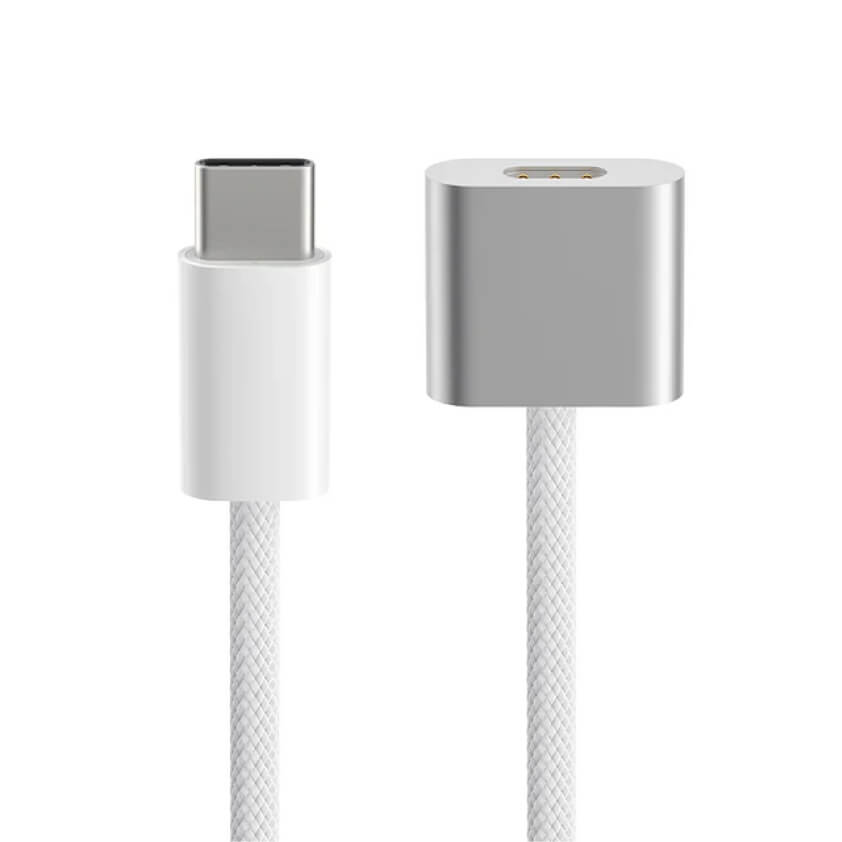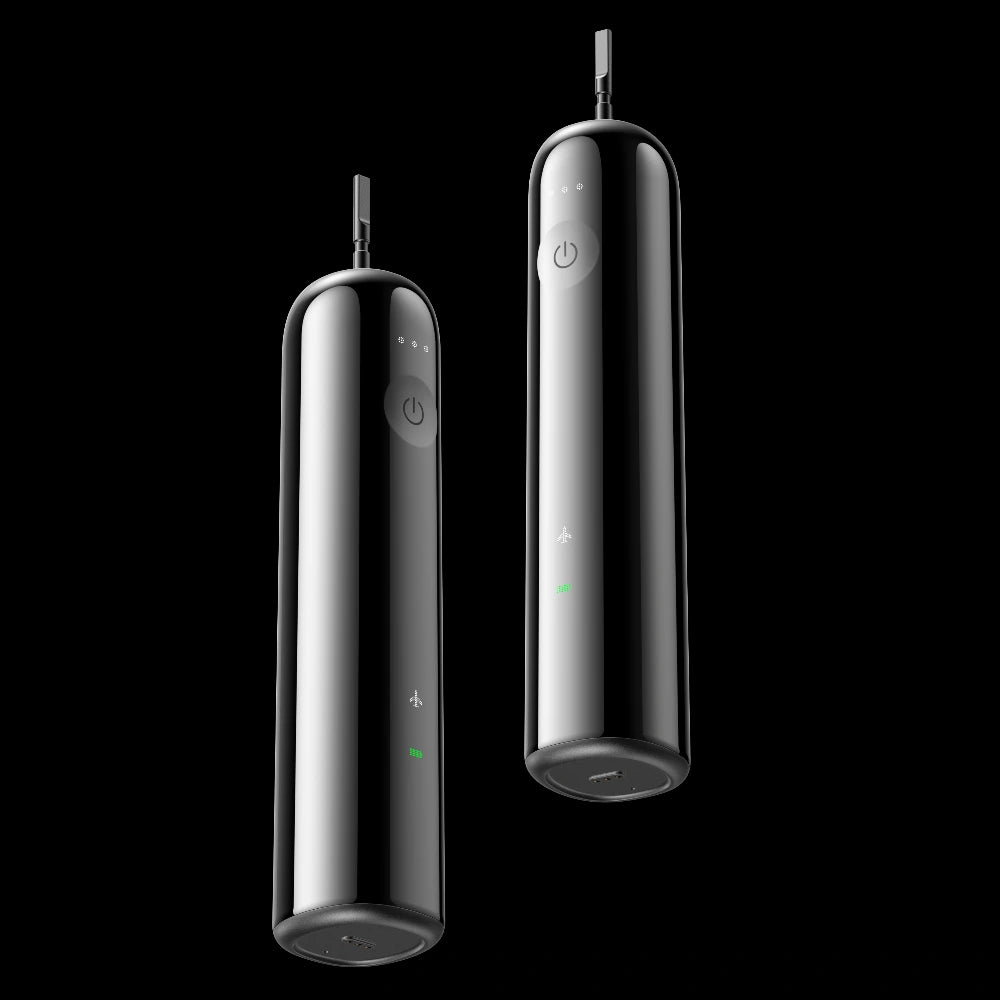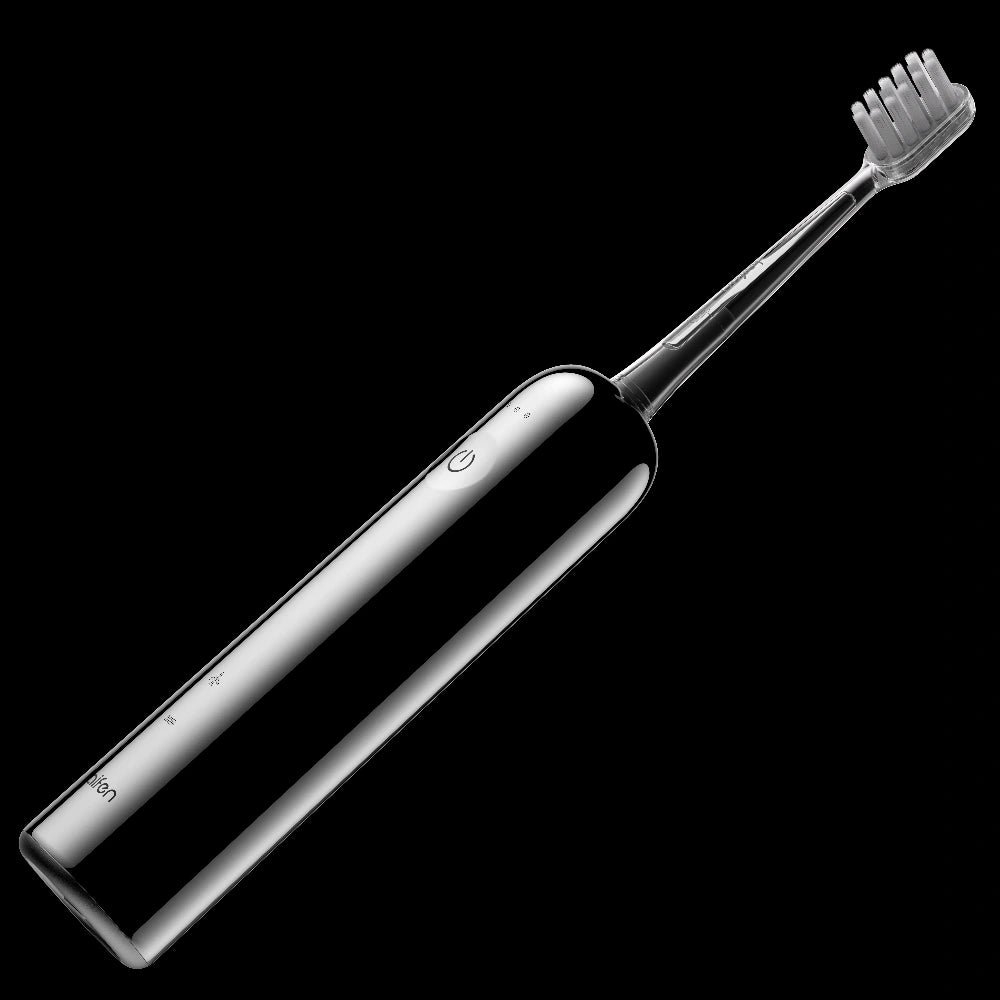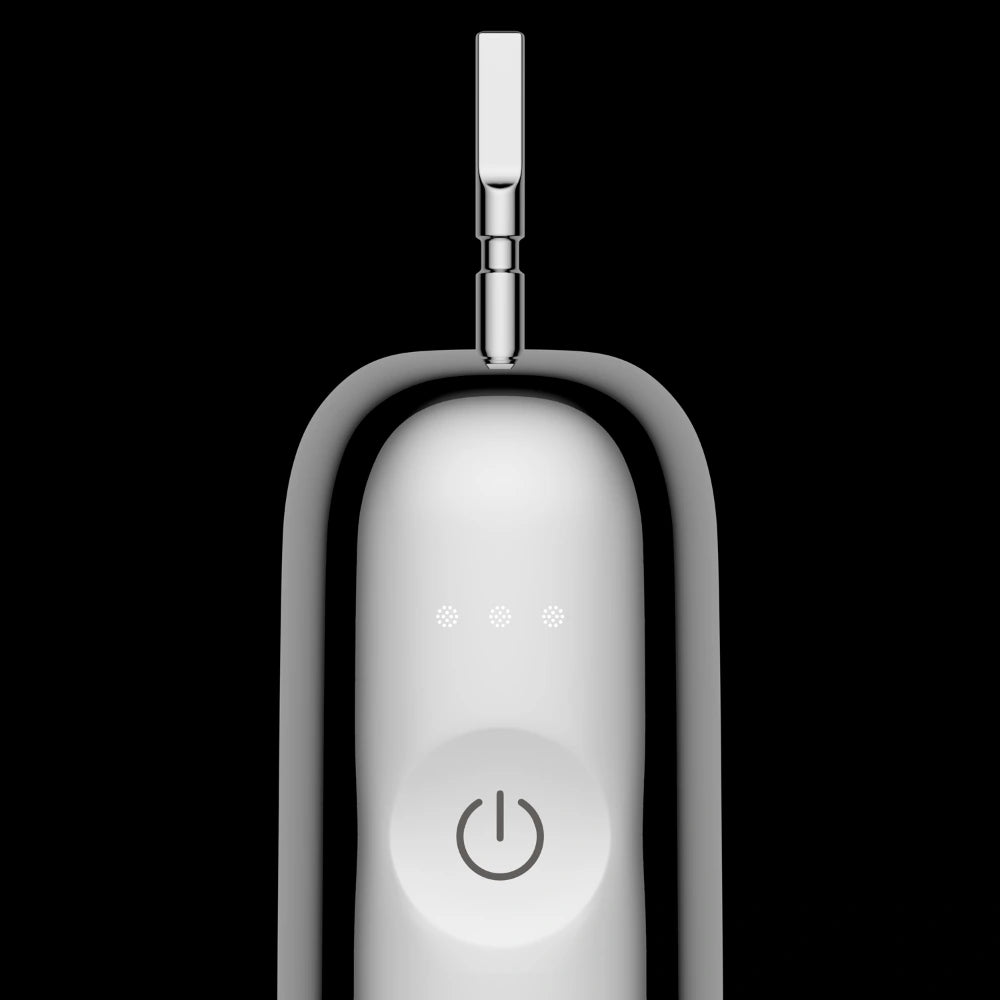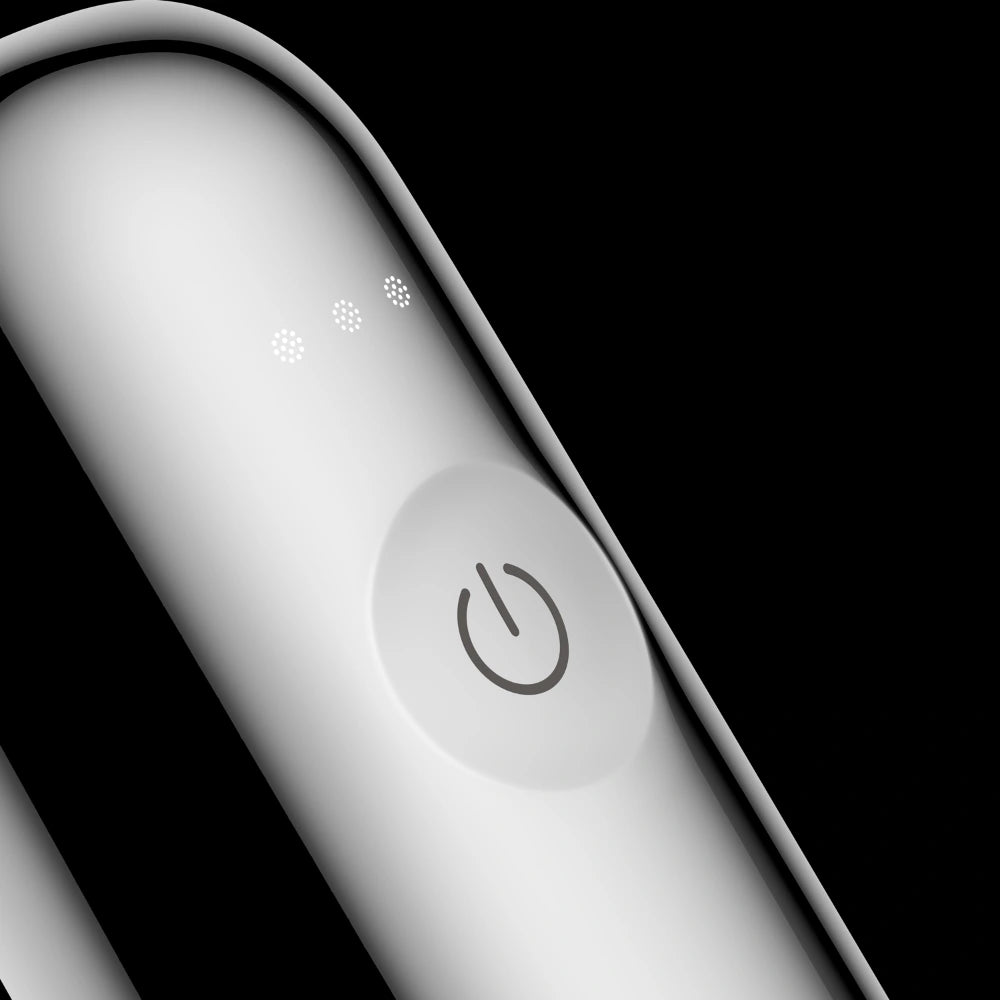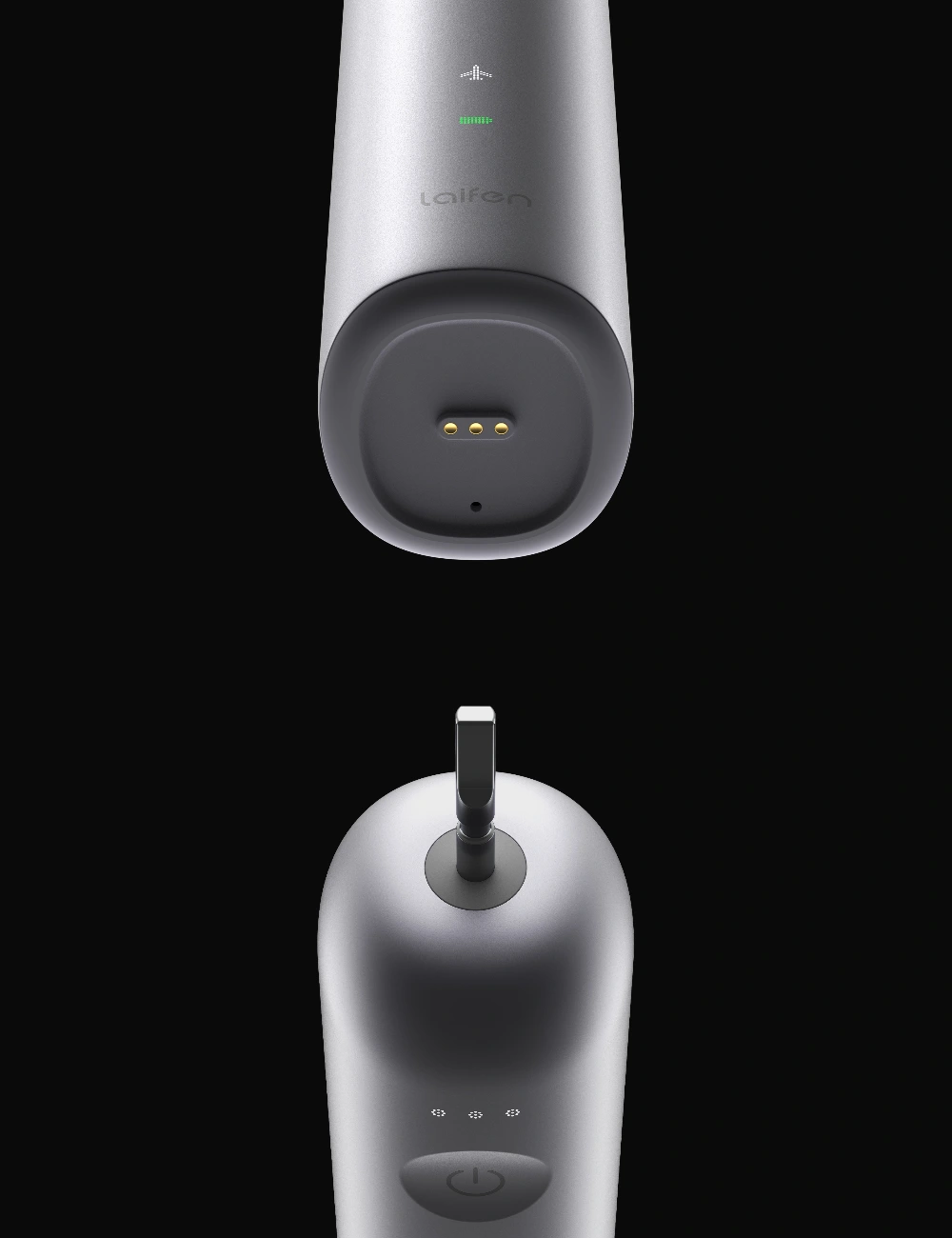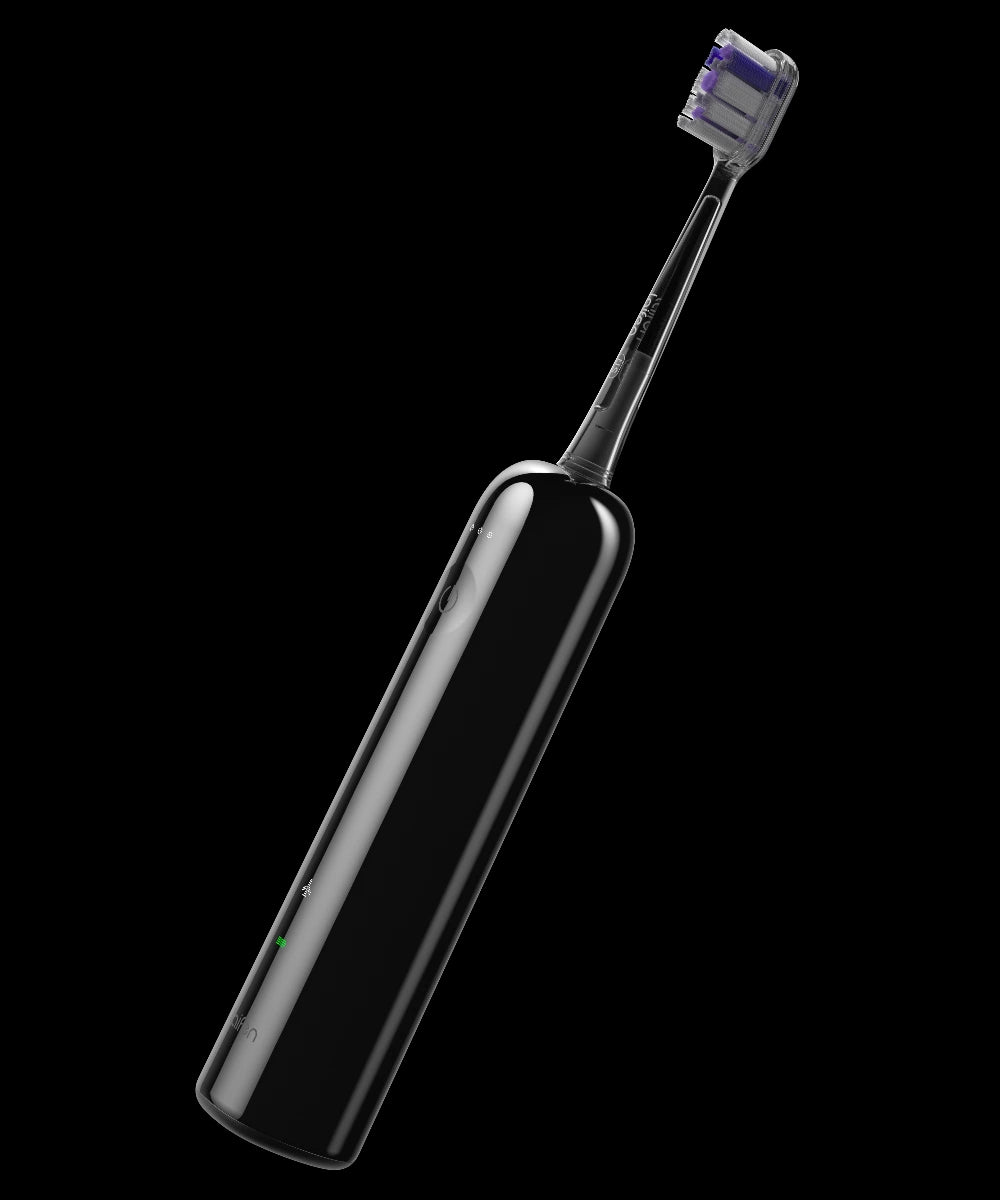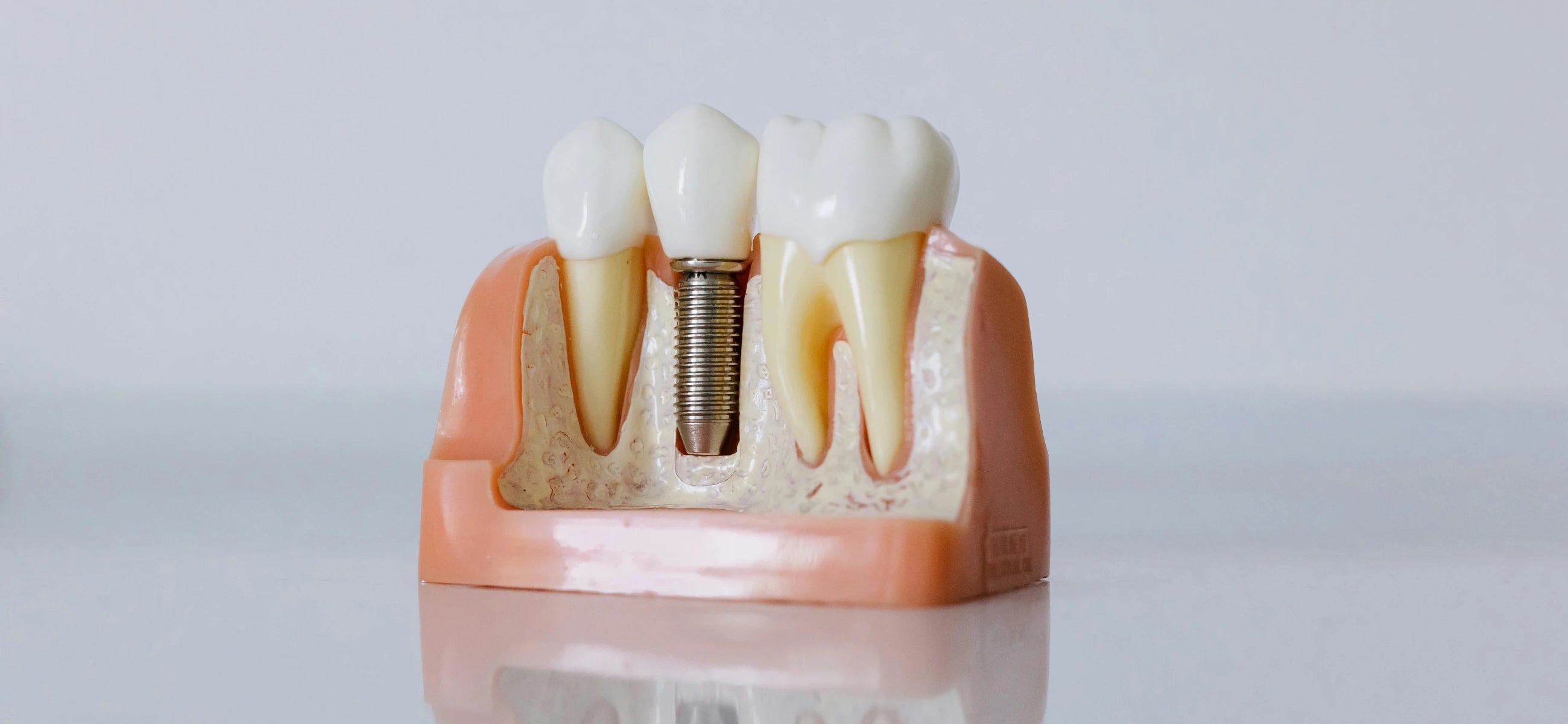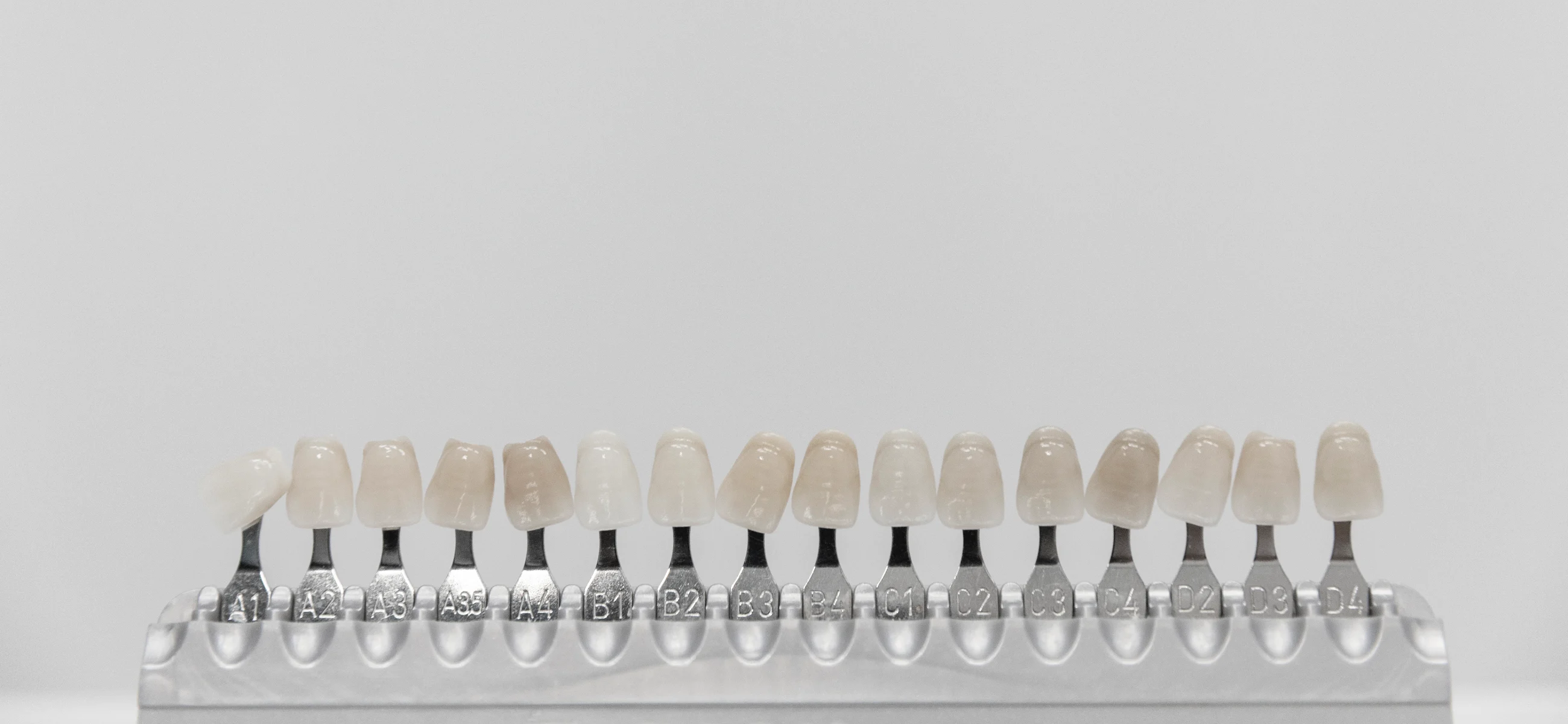
In this article
If you have a damaged tooth, you might be considering a dental crown as a solution. Dental crowns come in various forms and offer you the chance to enhance your smile. While most people know that dental crowns are best for molars, can you also opt for crowns on front teeth?
In this article, we explain what you need to know and run through your options if you want to add a dental crown to any of the teeth at the front of your mouth.
What are crowns on front teeth?
A dental crown, sometimes referred to simply as a crown, is a cap that covers part of a damaged tooth. It is also the top section of a dental implant, which can be added to your jawbone to replace a missing tooth.
When in place, dental crowns enhance the way the tooth looks and provide key structural support that helps when you bite and chew. Crowns can be added to both front and back teeth and are cemented in place.
Temporary crowns on the front teeth may be added as part of a procedure, but most crowns cemented in place are permanent, offering a good long-term solution to several dental issues.
Getting crowns on front teeth - why is it different?
Most people who have crowns installed on their teeth have them cemented on their molars. That is to say, their back teeth.
However, there's absolutely no reason why crowns can't be added to the teeth at the front of your mouth, too. Dental crowns on front teeth can restore the appearance of your smile and add structure and support to your teeth when you bite.
For your front teeth, you can opt for full crowns or ¾ crowns, depending on your need. Most patients opt for ceramic or zirconia crowns, as they are durable and easy to maintain.
One of the reasons that front teeth crowns are different to those used on molars is that your front teeth play a different role. Your front teeth cut and tear food, but they're also key for your speech. They don't do as much of the heavy lifting as molars, meaning that a ceramic crown is more than sufficient for the purpose.
When installed to a high level of quality and should you look after your teeth well, you can expect a front dental crown to last for 20+ years without issue.
Are crowns on front teeth noticeable?
This really just depends on the type of crown that you go for. We recommend porcelain or zirconia crowns, as they are not noticeable, which is particularly important from an aesthetic perspective for your front teeth.
Metallic or gold crowns can also serve the same purpose, but over time, they are likely to show a metallic line, as they don't naturally mirror the texture and color of your teeth.
Though slightly more expensive, ceramic crowns are a better option if you want to add a crown to your teeth that is not noticeable to anyone else. We introduce the different types of front teeth crowns below:
|
Type of crown |
Description |
|
Porcelain |
Porcelain crowns are perhaps the best option for front teeth, as they closely resemble your natural teeth and the material is highly durable, lasting for 20+ years. |
|
Zirconia |
Known for their strength, zirconia crowns are a great choice for molars, but they can also be good for front teeth. Again, they are highly durable and not noticeable. |
|
Resin |
If you're on a budget, resin crowns are a good option, as they are cheaper than porcelain and zirconia alternatives. The main downside is that they need to be replaced after 5-10 years and aren't overly durable. |
|
Metal |
The cheapest option is a metal crown, made from gold, chromium and other materials. Not as popular as they once were, most people opt against metal crowns because they are a different color from your natural teeth. |
What is the cost for crowns on front teeth?
The cost of any dental procedure depends on numerous factors, making it difficult to accurately say how much crowns will cost.
But as a general rule, you should budget between $500 and $1,000 per crown. As a starting point, visit your dentist and ask for a run down of the prices attached to the different crowns introduced above.
If you don't have dental insurance, you may need to opt for a cheaper option like resin or metal if porcelain crowns are out of your budget.
Crowns vs veneers on front teeth - which is better?
Both crowns and veneers serve similar purposes, as they help to improve the structure and appearance of damaged teeth. However, there is a significant difference between the two.
Crowns tend to cover the entire biting surface of a tooth, while dental veneers only usually cover the front of the tooth. What's more, dental veneers are primarily a cosmetic option, while dental crowns are used as part of a tooth replacement.
While both can work, you need to consult your dentist who will advise on the best course of treatment for your circumstances.
Conclusion
Crowns on front teeth might not be as common as they are on molars, but if you need to replace the biting surface of your tooth, they're a viable option.
You can opt for one of several types of dental crown for your front teeth - we recommend arranging a consultation with your dentist to kickstart the process and learn of your options.
FAQ
Q1: How to look after front dental crowns?
The best way to look after front dental crowns is to thoroughly clean your teeth at least twice a day with an electric toothbrush like the Laifen Wave. If you care for your front dental crowns in the right way, you can expect them to last for up to 20 years.
Q2: How long do crowns last on front teeth?
This depends on how you look after them and the type of crown that you go for, but ceramic and zirconia dental crowns usually last for 20+ years.
Q3: How strong are crowns on front teeth?
Crowns on front teeth are just as strong as those on molars. Ceramic and zirconia crowns are the strongest options, but metallic and resin crowns can work just as well if you're on a tight budget.













